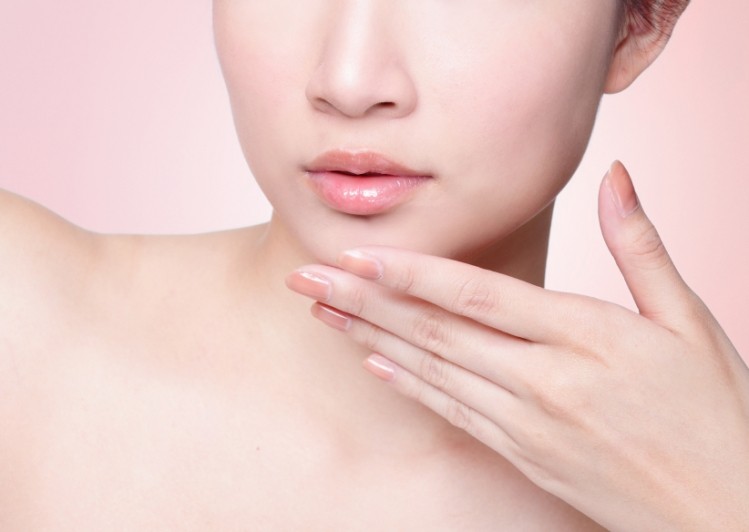
Skincare has transcended beyond a simple daily routine into a multifaceted practice deeply rooted in self-care, wellness, and science. Once merely a regimen of cleansing and moisturizing, skincare today is an intricate ritual that addresses an array of concerns, from anti-aging to hydration, acne treatment, and environmental protection. This evolution 護膚品 not only advancements in dermatology and cosmetic science but also a shift in societal attitudes towards health and self-image. In a world increasingly driven by visual culture and digital presence, glowing, healthy skin has become synonymous with confidence and vitality. The modern skincare industry, a multi-billion dollar enterprise, now offers a vast array of products catering to diverse skin types, concerns, and lifestyles, making it both a science and an art.
The foundation of any effective skincare routine lies in understanding one’s skin type and its specific needs. Skin types generally fall into categories such as oily, dry, combination, sensitive, or normal, and each type requires tailored care. For instance, oily skin benefits from lightweight, non-comedogenic products that control sebum production without clogging pores, while dry skin thrives on rich, hydrating creams that restore moisture balance. However, skin type is just the beginning; factors such as age, environment, diet, and even stress levels play crucial roles in determining the right skincare approach. This complexity has led to a surge in personalized skincare solutions, where products and regimens are customized based on detailed skin analyses, often involving AI technology.
One of the most significant trends in skincare is the rise of clean beauty, a movement towards products free from potentially harmful ingredients like parabens, sulfates, and synthetic fragrances. Consumers are becoming more educated and cautious about what they apply to their skin, leading to a demand for transparency in product formulations. Brands are now focusing on natural, organic ingredients and sustainable practices, not just for the benefits they bring to the skin but also for their lower environmental impact. This shift has seen the emergence of ingredients like hyaluronic acid, vitamin C, and niacinamide, celebrated for their efficacy in skin hydration, brightening, and overall health, without the unwanted side effects of harsher chemicals.
Another crucial aspect of modern skincare is sun protection. Dermatologists universally agree that sunscreen is the most vital component of any skincare routine, as it protects the skin from harmful Uv rays, which are the primary cause of premature aging and skin cancer. The understanding and importance of SPF (sun protection factor) have grown, with consumers now aware of the need for broad-spectrum sunscreens that protect against both UVA and UVB rays. Moreover, innovations in this field have led to the development of lightweight, non-greasy sunscreens that blend seamlessly with other skincare products, making daily sun protection easier and more appealing.
The impact of diet and lifestyle on skincare is another area gaining attention. The concept of “beauty from within” emphasizes the role of nutrition in skin health, with a diet rich in antioxidants, vitamins, and minerals promoting a radiant complexion. Hydration, both through drinking water and using hydrating products, is crucial for maintaining skin elasticity and preventing dryness. Additionally, stress management techniques, such as meditation and regular exercise, have been found to improve skin conditions like acne and eczema, highlighting the interconnectedness of mental health and skin health.
In recent years, the rise of technology in skincare has brought about significant changes in how consumers approach their routines. Tools like facial cleansing brushes, LED light therapy devices, and microcurrent machines have become popular for their ability to enhance the effects of topical products and deliver professional-level results at home. Furthermore, skincare apps and diagnostic devices now offer personalized skincare advice based on real-time analysis of the skin, allowing users to monitor changes and adjust their routines accordingly.
Anti-aging remains one of the most sought-after benefits in skincare, driving innovation in ingredients and formulations. Retinoids, peptides, and growth factors are among the most effective ingredients for reducing the appearance of wrinkles, fine lines, and age spots. These ingredients work by stimulating collagen production, improving skin texture, and promoting cell turnover. The trend towards “preventative aging” has also emerged, where individuals in their 20s and 30s begin incorporating anti-aging products into their routines to maintain youthful skin longer.
The rise of inclusivity in skincare is another pivotal shift in the industry. Brands are increasingly recognizing the diverse needs of consumers across different ethnicities, genders, and skin conditions. This has led to the development of products that cater to a broader range of skin tones and types, ensuring that everyone can find solutions that work for them. Inclusive skincare not only addresses cosmetic concerns but also fosters a sense of belonging and representation in an industry that has historically been limited in its offerings.
Skincare is also increasingly viewed through the lens of mental well-being. The act of caring for one’s skin is often a meditative process, offering a moment of peace and self-care in a busy world. This emotional aspect of skincare has been amplified by the COVID-19 pandemic, where at-home rituals have become essential for coping with stress and uncertainty. The growing popularity of skincare as a form of self-love and self-expression reflects a broader cultural movement towards holistic health, where the physical, emotional, and mental aspects of well-being are interconnected.
In conclusion, skincare today is much more than a superficial concern; it is a comprehensive practice that blends science, self-care, and wellness. As the industry continues to evolve, it embraces innovation, inclusivity, and sustainability, reflecting the changing values of consumers who seek not only effective solutions for their skin but also products that align with their ethical and environmental beliefs. The future of skincare looks promising, with ongoing advancements likely to bring even more personalized, effective, and mindful approaches to maintaining healthy, glowing skin.
Be First to Comment